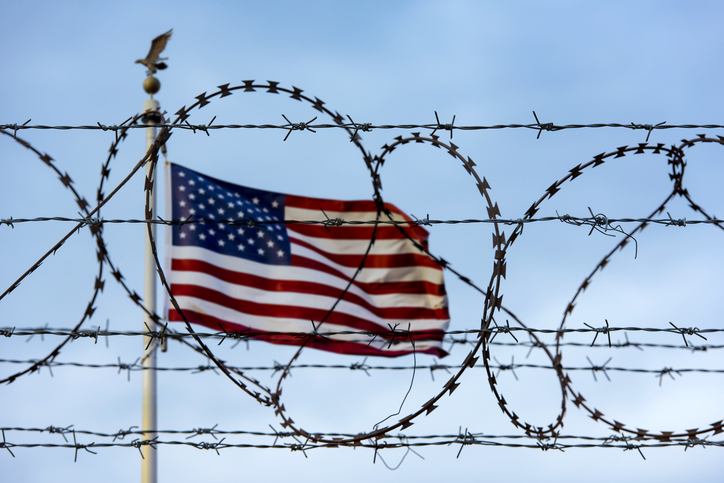November 7, 2018
Is This What a White Nationalist U.S. Immigration Policy Looks Like?
Associate Professor of Law, Washington and Lee University School of Law

President Trump recently proclaimed himself to be a nationalist. Multiple immigration policies were announced shortly thereafter. On the campaign trail and since his election, President Trump has announced controversial immigration policies in rapid succession, one after the other. It is tempting to look at each immigration policy individually, standing alone. Doing so risks missing the bigger picture: each new immigration proposal can’t be viewed in isolation and can’t be evaluated on its own merits under the law in isolation. Instead, U.S. immigration policy must now be examined holistically. Without the frame of white nationalism, we ask: Is the immigration policy constitutional? Is it consistent with the law? With the frame of white nationalism, these questions must be paired with another question: Is the immigration policy ideologically driven in support of racial hierarchy?
After he announced he was a nationalist, he threatened to end birthright citizenship. He threatened to send as many as 15,000 military troops to the southern border. Currently, it has been reported that 2,100 members of the National Guard and 5,200 active duty service members could join the the National Guard. He threatened to seal the border if necessary to block admission of the "caravan." The caravan, originating in Honduras, is a collection of thousands of migrants currently traveling primarily by foot through Mexico. In a northward march toward the U.S.-Mexico border, many of the migrants have stated that they are hoping to seek asylum in the U.S. Some migrants have explained they fear persecution and death in their own countries.
RELATED: Listen to our discussion of the legal implications of President Trump's immigration policies.
The administration’s immigration policy can and should be contextualized through a white nationalist frame. “America First” was a slogan first introduced by isolationists and nationalists protesting U.S. entry into WWII. Charles Lindbergh, a leading voice for the America First Committee, publicly expressed Nazi sympathies. By resurrecting “America First,” and interweaving it with the backward-facing “Again” in the “Make America Great Again” slogan, President Trump resets the clock on white nationalist rhetoric by almost a century.
President Trump referred to the caravan as an “invasion.” Shortly thereafter, the deadliest attack on Jews in the U.S. occurred with the Tree of Life Synagogue shooting in Pittsburgh that left 11 dead. Six days before the shooting, suspect Robert Bowers, charged with the synagogue shooting, noted on social media: “I have noticed a change in people saying, ‘illegals’ that now say ‘invaders’. I like this.” Bowers also shared on social media that a Jewish refugee advocacy group was assisting the caravan and described this effort as “evil.” After the shooting, a collection of over 35,000 individuals signed an open letter to President Trump, asking him to denounce white nationalism.
Since taking office, through policies such as promulgating the Muslim Ban/Travel Ban; rescinding Deferred Action for Childhood Arrivals (DACA); revising asylum guidelines; reducing refugee admission quotas to historical lows; ending Temporary Protected Status (TPS); promoting the “Zero Tolerance Policy” and family separation, including the detention of children and babies separated from their migrant parents; mass trials to enforce deportation; restricting health care access to immigrants in detention; threatening a government shutdown unless the “Wall” is erected; social media surveillance of noncitizens and naturalized U.S. citizens; extreme vetting; the public charge rule, denying green cards and temporary visas to those who might receive certain government benefits; and other anti-immigrant policies, the administration also resets the civil rights clock back by over a century. The recent calls for the end to birthright citizenship, militarization of the border and shutting down the border, combined with other immigration policies, are consistent with a white nationalist agenda.
Many of the administration’s immigration policies have been challenged in the federal courts. An attempt to end birthright citizenship would be challenged as unconstitutional under the Fourteenth Amendment. An attempt to militarize the border could be challenged as violating the Posse Comitatus Act, for example, which prohibits the use of the U.S. military for domestic law enforcement. An attempt to seal the border could be challenged as an overreach of executive authority, as such an action, arguably, would be contrary to immigration laws established by Congress. Such action may also be found to be in violation of Due Process and international treaties that work to protect the rights of asylum seekers. Even if those challenging these immigration policies prevail in federal court, the ideology of racism still needs to be confronted on the political stage and in the court of public opinion.




